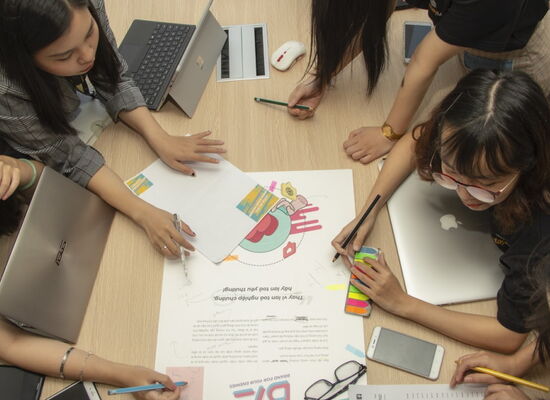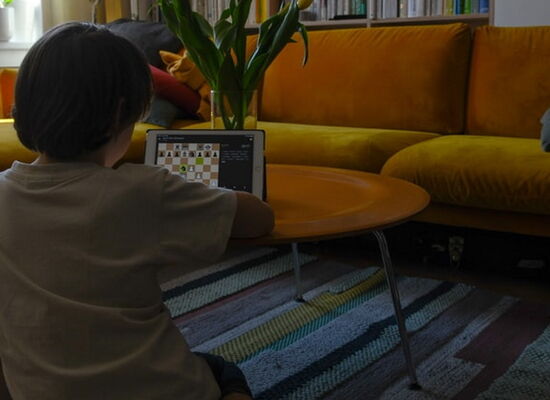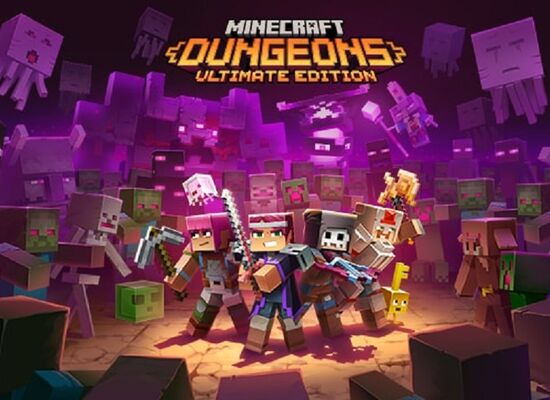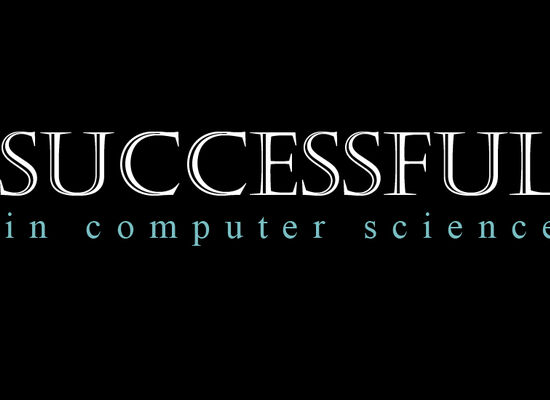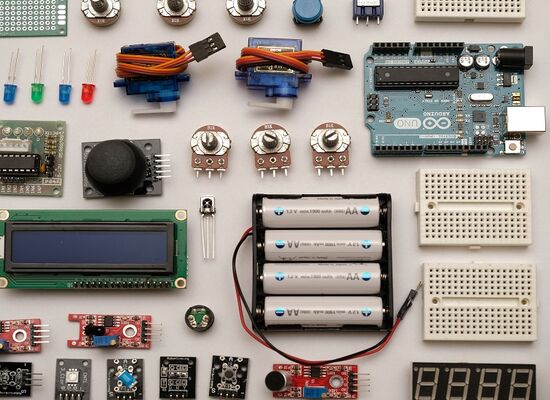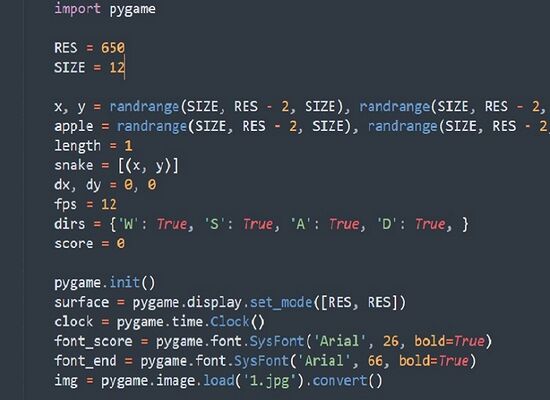Speaking To Your Kid About Their Coding Classes
6 May, 2020
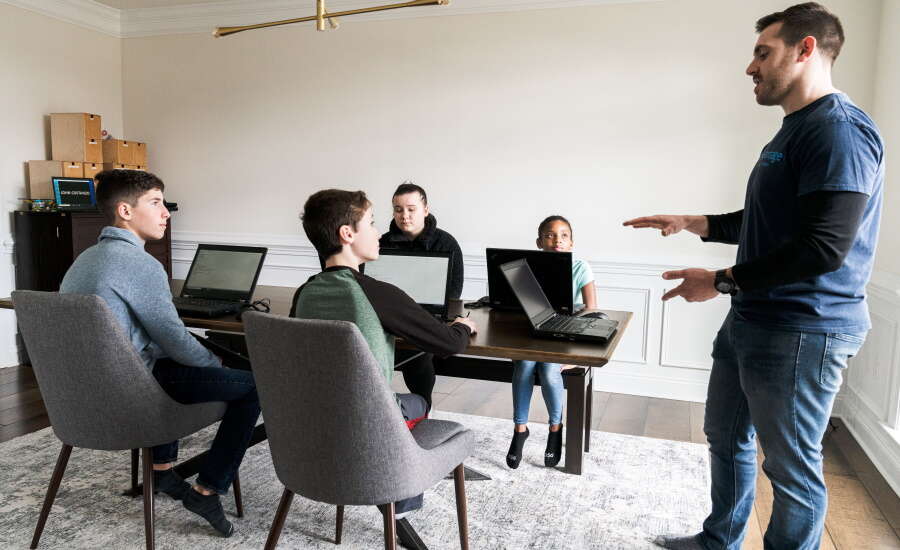
How to tell if your kid is progressing in their coding courses?
Fundamentals: It’s crucial that your child has a solid understanding of the workings of code. Your child should always understand the purpose of the code they’re writing. Bashing away at a keyboard with no sense of direction is not learning.
Soft-Skills: It’s easy to pick up whether your kid is being taught coding the right way. Just like with any other subject, there’s a lot more to coding than the course material. To code, kids need to be able to think critically, solve creatively and collaborate effectively.
Deeper understanding: Even if you don’t know a thing about coding, you can still gauge the depth of your child’s knowledge by asking them to explain to you the code they have been writing in simple terms. Code is pure logic and, if understood properly, can be translated in to any language, be it English or the 0’s and 1’s of computer-speak.
Speaking To Your Kid About Their Coding Classes
As parents, we all love to see how our children grow physically as well as mentally. Nothing beats the pride on hearing your kid explain how photosynthesis works or how they calculated the distance to the Sun with algebra. True, sometimes it takes a bit of prodding to get a decent answer to “How was your day at school?”, but in the end we have a good idea of how our kids are progressing in all their subjects. Coding, however, is rarely talked about on the drive home. Why parents don’t talk about coding with their kids is no secret. We feel unequipped to talk about something which we have never learnt before. Though counter variables and APIs may be Greek to us, we can and should most definitely check in on our kids’ programming progress.
How to talk with your kid about their programming lessons?
Many parents mistakenly conclude that coding is simply the ability to write lines of code. In fact, that is the least difficult skill that kids learn in coding class whether online or in school. Critical analysis, clear communication and creativity are the keystones to programming and it is these soft-skills that you as a parent should pay attention to. There’s no need test your kids on the programming lingo or rules of syntax. As soon as you realize that thinking rather than the typing is at the core of coding everything becomes easy.
Start off with these 5 questions and be prepared to be amazed by all the smarts your kid has picked up in their coding lesson!

Pesky Problems and Super Solutions

1. What problems did you have in class? How did you solve them? Learning coding is a much more natural process than the copy-and-learn method of most school subjects. Kids revel in the freedom and fun, but it also makes problems a lot more likely. In fact, glitches are an integral part of programs. In class, kids should be taught how to find problems and then be given the framework from which they can think of their own solutions.
Creative Courage

2. What was the most out-the-box thing you did?
The exciting thing about coding is the creativity implicit in each line.
All the most successful coders, from Mark Zuckerberg to Bill Gates, had that creative spark in them. And though for them it may have come naturally, kids can definitely be encouraged to be creative in coding class. Make sure your kids aren’t just being taught a programming language; it’s critical that they learn how to use and adapt a language in many different contexts. Project-based online coding classes like CodeAdvantage’s are great for fostering creativity.
Critical Analysis
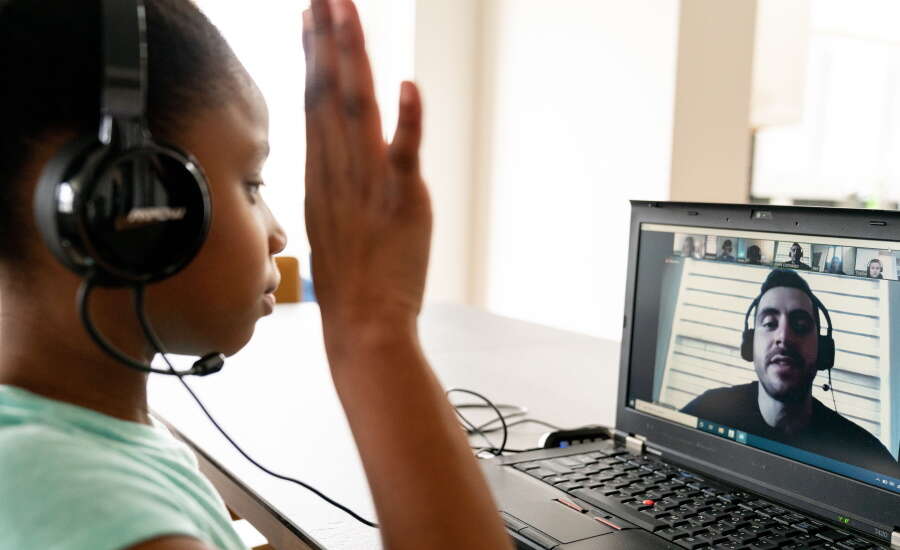
3. What improvements have you made?
Like a good novel, a program is nowhere near finished once its written. Meticulous editing and rewriting is essential to a code’s smooth execution. Coding courses shouldn’t be rushed. Your kid should be given time to go through their code and teachers should always be giving constructive feedback. If your kid can’t think of how to improve their code that is a red flag. Even the best of code can be tweaked. As a rule, your kid should be spending at least a quarter of class time going over the code they’ve already written, making edits and test runs.
The Bigger Picture
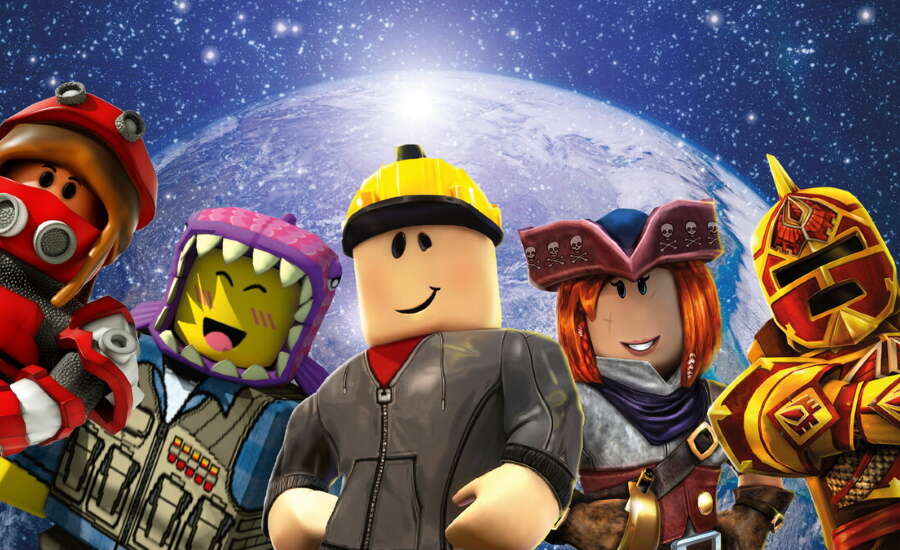
4. What’s the goal behind all those lines of code you’re writing?
It is essential that your kid grasps the connection between lines of code and a computer’s actions in coding class. Apart from the fact that this is the fundamental point of programming, seeing the bigger picture is key to your kid enjoying coding. The best online coding classes for kids use project-based learning to teach a programming language. For example, your kid might make a game on Roblox in a Lua language course. While making this game, your kid shouldn’t just be blindly following the teacher step-by-step. They should be encouraged to think about the purpose of every paragraph, line, word and even comma in their code. If taught right, you can expect enthusiastic answers from your kids about how the 10 lines of code they wrote in class will add rolling balls of fire to their game or will let them embed cool videos on their website.
Sharing is Learning

5. Did you teach your friends anything?
The stereotype that coders are anti-social is one that really needs to be broken. Because coding is such a young field, it’s constantly changing and being improved. It’s also an unbelievably wide field. All of this makes it very difficult for one person to keep on top of everything. That’s why the best of programs, such as the 2 billion lines of code behind Google, were the product of huge group efforts. A surefire sign that your kid is advancing in coding class is if they’re at a high enough level to learn from other kid’s projects, borrow lines of code and hopefully even collaborate on joint projects. Go team work!
Thanks for reading this article and if you have any questions or comments on this topic or coding and STEM in general, please feel free to contact us.
Photos by Austin Pacheco, Zan on Unsplash
